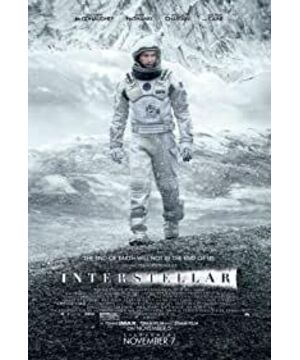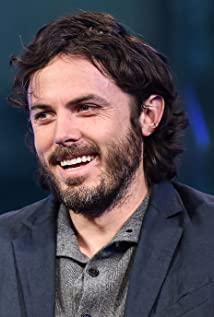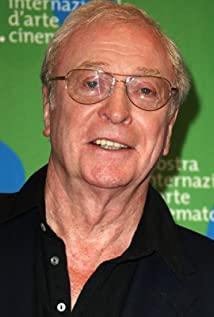Before we enter into the specific discussion of "Interstellar", we may need to make a small summary and analysis of Director Nolan-he may be the director of our time with the most box office appeal and glamour. If we put aside the level of the film and television industry and analyze Nolan’s success only from his personal talents, what are his greatest strengths and strengths? In other words, what is so good about Nolan's movie?
I think it is an ingenious design of the narrative structure. Many directors use non-linear narratives, but Nolan is undoubtedly one of the best. Take my personal favorite Nolan’s work "Memento" as an example. The two story lines of the same protagonist are divided into fragments, one takes place in sequence, and the other is a real reverse time. It is like a string ignited by both ends, gradually meeting at the midpoint filled with gunpowder, bursting out the last spark. Such a design requires an extremely clear mind for the creator, and the details of the story must be carefully designed to give the viewer intellectual pleasure at the final intersection. Different from the formal beauty of ordinary non-linear narratives, Nolan's works have a certain mathematical exquisite aesthetics.
And there is a more wonderful phenomenon in the delicate structure: the tension in the structure itself naturally penetrates into the narrative, and the unfolding of the story appears to be a matter of course. Of course, this is related to the characteristics of the suspense film in the genre. When the viewer finally smoothes the structure, it also releases the suspense and obtains double satisfaction.
Some of the acclaimed Nolan films are characterized by complex and sophisticated structures, such as the five-fold dream of "Inception". Of course, the Dark Knight trilogy does not conform to this paradigm. In these three films, Nolan embodies the ability to deepen the transformation of existing themes. But if we look at his works from another angle, we will find that outside of the structure, Nolan is actually quite Hollywood narrative (or "popular"). The story in each dream of "Inception" is a complete, cliché Hollywood story. The Dark Knight series is also the use of existing Hollywood themes (ambiguity of good and evil, social movements), the innovation is only in permutation and combination. From this perspective, it is still the ability to grasp the structure.
Finally, let us examine "interstellar" from this perspective. In this movie, where is Nolan's innovation reflected? Of course, in the theme of the story, there is an unpredictable tradition: the relationship between father and daughter is the focus and end point throughout. Although Nolan expressed admiration for "2001 Space Odyssey" in the interview, he obviously Without the courage to shoot a meta-narrative movie, I chose the safest family relationship as the emotional thread. Nolan even used nearly an hour to pave the way for the relationship between the two, which is so bold in a science fiction film that uses interstellar travel as a selling point.
So where is the innovation? I think it is a rare "hard" science fiction element. With Kip Thorne as a scientific consultant, the scientific details involved in the interstellar have serious theoretical foundations. The characters in the movie use a lot of scientific terms to tell the audience in reality that everything we do is possible, but it is still It's not realized. And if the audience goes back to check the Wikipedia of "Wormhole" and "Singularity", it will confirm the plot in the film.
But the problem has arisen. To a certain extent, the rigor of the scientific foundation can only represent the serious pursuit of the film, and can even be used as a promotional selling point, but it cannot play a role such as intricate structure or theme innovation, that is, it becomes the real driving force of the film. . In fact, there is a new space for discovery in the theme of Interstellar, that is, the human attitude towards the earth-is it a mine or a home (which happens to be an intertextuality with last year's "gravity")? However, Nolan's exploration from this perspective was simple, and finally resolved this contradiction in a lazy way (we will mention it later), and put the emotional focus entirely on the relationship between father and daughter. This theme is so mainstream that it has to test Nolan's ability to control the movie in a popular framework.
But as many film critics criticized, Nolan has never been top-notch in technical aspects (narrative skills, scheduling editing). The first third of the earth life scenes are only slightly procrastinated, but you can also say that they are solid and detailed. However, after the interstellar travel, the plot seems to be a little lost between technical details and emotional clues. This shortcoming is particularly obvious at the end of the film: Cooper entered the five-dimensional space and had a lot of theoretical discussions with Tars, which can be said to be the key plot to uncover the scientific mystery. But at this time the narrative focus suddenly shifted to the communication between the father and daughter through the singularity. At this time, I was still trying to connect the scientific logic of the movie with Cooper's lines just now, and almost missed this emotional climax.
Another problem lies in the emotional cues itself. Is Cooper's struggle to keep his promise with his daughter, or to sacrifice himself for the task? Furthermore, as Dr Mann said, is it to choose a little love for relatives or a big love for humans? But all these contradictions, Nolan solved by coincidence rather than the inner motivation of the characters: lack of fuel happened to require Cooper to sacrifice herself (the dilemma was emptied), and happened to enter the singularity to communicate with her daughter to untie her heart. (Emotional conflict is resolved), and the final coincidence is even exaggerated to the point that I can come out of the black hole to see my daughter again. Of course, the emotional line is complete, and the scene of the reunion is of course sensational, but this also loses the opportunity for us to take the opportunity to examine ourselves through the struggle of the characters.
As an interstellar travel movie, another key to the attraction is the use of visual presentation to take us into the vast space. At this point, Interstellar obviously cannot be compared with last year's gravity. But with the soundtrack of Hans Zimmer and the highly scientific simulation of the appearance of the black hole, it is still very pleasant and shocking. But Nolan once again showed roughness in the scheduling and editing of action scenes that he was not good at. Take Miller’s planetary drama as an example. When they discovered that the distant place was not a mountain but a huge wave (by the way, I think it’s the most expressive shot in the film), the movie lacked the lens to explain the spaceship, the two astronauts, and the record. The position and distance relationship between Yi and Julang made the audience ignorant of the danger of Brand taking the recorder. In the whole process afterwards, the lens switched between the rigid mid-range and close-range shots. Each scene is a separate picture of a character, and the amount of information is extremely insufficient, making the audience lose the sense of urgency to empathize. Of course, what is even more bizarre in this scene is, why not let the robot take it from the beginning? And why did the other astronaut wait for not running to the spacecraft, leading to his final sacrifice? Also unsatisfactory is the fight scene between Cooper and Dr Mann.
David Bodwell concluded that Nolan is good at cross-editing. In the last part of the film, there was a large-scale cross-editing: on the one hand, Cooper went from chasing Endurance to entering the black hole, on the other hand, his daughter burned his brother's cornfield, and returned to the old house to pick up his brother, wife and children. This paragraph reflects Nolan’s level. In the style of the picture, the yellow, tense and noisy sense of the earth is in sharp contrast with the loneliness and darkness of the interstellar space. "Sit down and wait for the dark night" to work hard and take the initiative.
But when Cooper entered the five-dimensional space, the cross-editing continued, which was also the climax of the movie. For various reasons, compared with the rich dimensions of physics, the emotion of this period appeared very flat. One is that the above-mentioned theoretical digestion of time makes it difficult for viewers to enter the situation, and in the theoretical space of the film, since gravity can transcend time, there is no urgency for my daughter to decrypt, and cross-editing is not actually a juxtaposition in time. , Then the emotional tension at this time also appears artificial. Of course, the laziness of relying on coincidence rather than the inner motivation of the characters to resolve contradictions is also an important reason for this flatness. The sensational scenes at the end are more routine and seem unusually mediocre. What makes it difficult for the audience to accept is that at the end, apart from the sensationalism of the father-daughter meeting, there are only spectacle displays on the track station (and quite perfunctory).
The lack of narrative dimension is also reflected in the flatness of the characters. Is the role of the son necessary? He has no sense of existence in the hearts of the audience as in the hearts of his father, and Dr Mann is another character who could have been digging out, but is unclear. Of course, all the focus is on the father and daughter, but it is a pity that such a grand story structure and the narrow perspective are too narrow.
So is Nolan really that bad? Of course not. Even in this movie, his serious attitude is still lacking in most directors. On the subject of interstellar travel, he did not fall into the naivety of some sci-fi movies that I did not like, but with the usual serious attitude, he created a realistic story without Indian aliens. . And if the story itself can be told a little more refined, it can be regarded as a good one in a big production. But seriousness can never replace artistry. While movies allow us to look at the outside world, the more attractive function is to let us look at our own hearts, which Interstellar lacks. The reason for this lack is the lack of dimensions of the film itself. In the absence of a basic construction, Nolan is unable to truly expand the connotation of the film itself in the way of film. This has been reflected in "The Dark Knight Rises", and Interstellar is a more concentrated manifestation of his shortcomings as a director. Just like a post-modernist architect, if you break away from the structural ingenuity, when you design a square internationalist building, the lighting and comfort shortcomings that have been concealed in the past will appear dazzling.
Therefore, I am opposed to Nolan’s god-making movement. God is characterized by omnipotence, and good film directors should always soberly understand what they are good at and what they are not good at, and how to use their strengths and avoid weaknesses.
View more about Interstellar reviews











